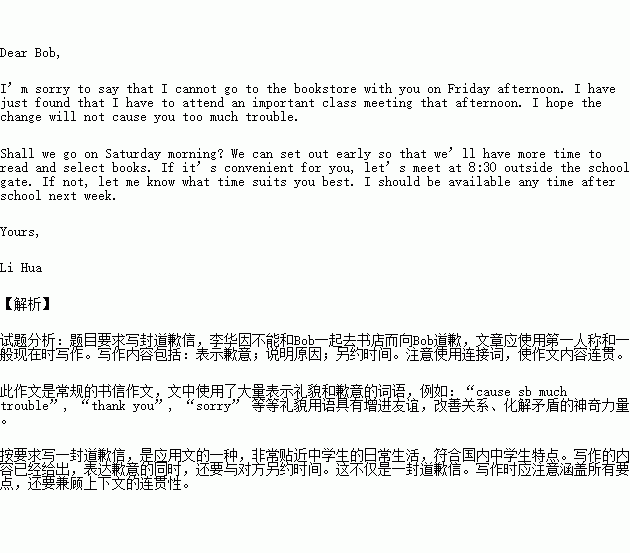题目内容
假定你是李华,与留学生朋友Bob约好一起去书店,因故不能赴约。请给他写封邮件,内容包括:
1. 表示歉意;
2. 说明原因;
3. 另约时间。
注意:
1. 词数100左右;
2. 可以适当增加细节,以使行文连贯。
____________________________________________________________________________________________
____________________________________________________________________________________________
____________________________________________________________________________________________
练习册系列答案
 导学教程高中新课标系列答案
导学教程高中新课标系列答案
相关题目

